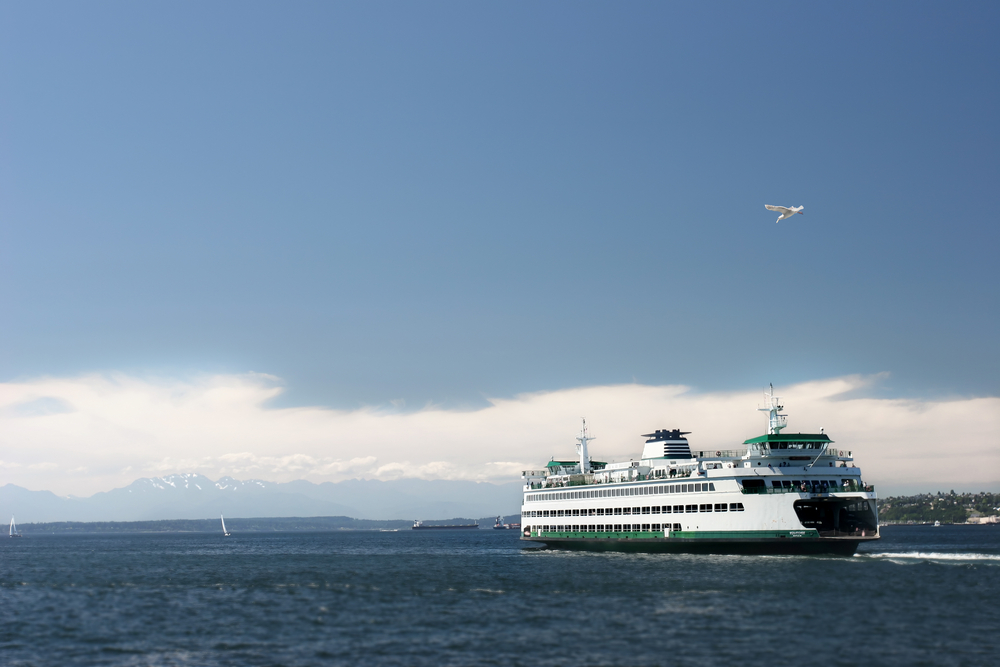
The Washington State Department of Transportation (WSDOT) recently announced the likely hybridization upgrade of one of its Jumbo Mark II ferry fleet, which includes the Tacoma, the Wenatchee, and the Puyallup, drawing the interest of Kåre Aas, the Norwegian ambassador to the United States.
One of the state’s ferry fleet is soon to have two of four diesel engines converted to batteries, allowing it to run on electric power for most of its operation schedule. The state’s WSDOT said that this change will save enough money to pay for the conversion of the other two ferries in the fleet, or up to $14 million in operating costs.
The project has drawn international attention, in particular from Norway, which has one of the world’s first all-electric car ferries. State transportation leaders took Aas on a tour of the Tacoma’s engine room to discuss a potential collaboration on electric ferry projects.
“The experience you’re getting, and the experience we’re getting, we can use those in our common endeavors,” Aas said. “There are good opportunities for Norwegian enterprises, but also American enterprises and enterprises in the state of Washington.”
At present, WSDOT said that the Jumbo Mark IIs are some of the biggest polluters at its disposal, burning more than a quarter of the diesel fuel used by the state’s entire ferry fleet. Their aggressive sounds also have impacts on the local wildlife — sounds that would almost entirely stop following an engine conversion.
“The people of Washington state are very concerned about climate change. They’re very concerned about greenhouse gas emissions,” Washington Transportation Secretary Roger Millar said. “We’re moving 25 million people a year on our system, and those three boats are our biggest polluters. They’re at the midpoint of their lives, and we are developing a plan to take them in as part of their regular overhaul and convert them to hybrid boats.”
Similarly, Norway aims to have two-thirds of its ferries run on electricity by 2030 and its all-electric car ferry has already cut carbon emissions by 95 percent, as well as operating costs by 80 percent.